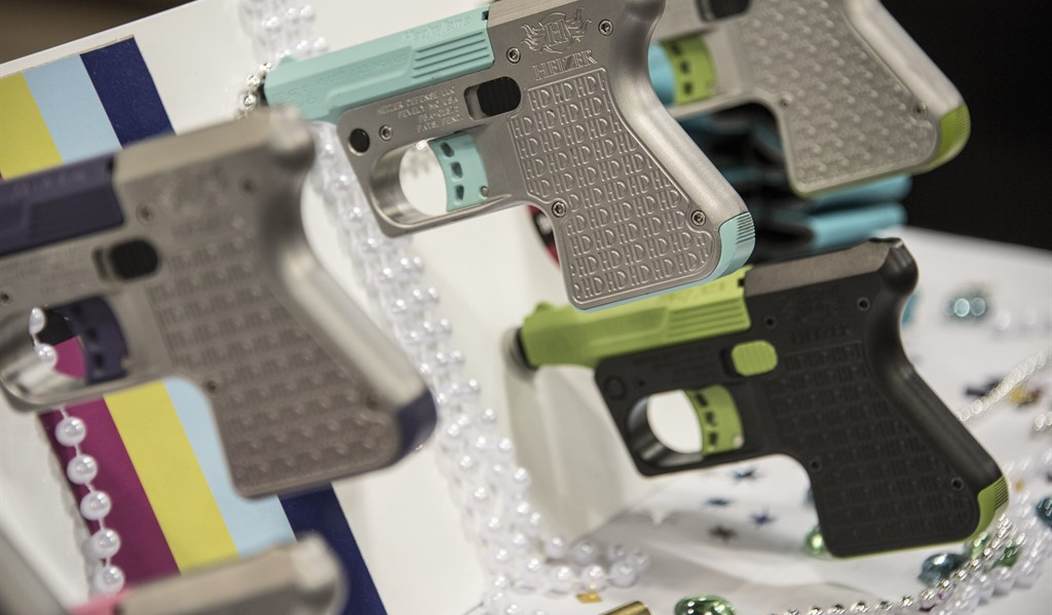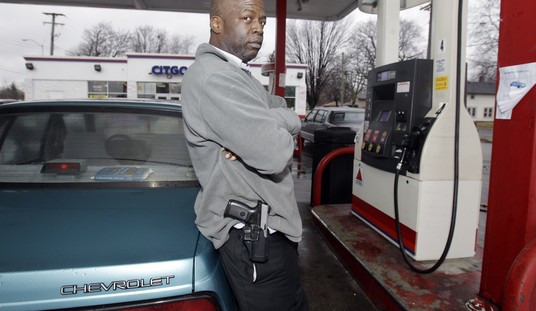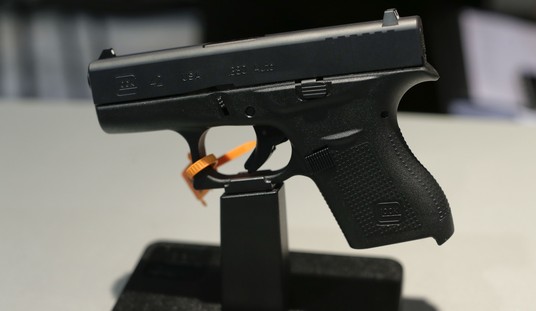AP Photo/Lisa Marie Pane, File
Gun rights are generally considered second-class rights in this country, sometimes even in ostensibly pro-gun areas as well as in anti-gun hellholes like California or New Jersey.
Examples of how this is true were recounted by David French, including this one in a story over at National Review:
But perhaps the best expression of gun owners as second-class citizens under the Bill of Rights came from the Fourth Circuit Court of Appeals. The court ruled that police could frisk a person if they believed that the person carried a firearm, even if he possessed a concealed-carry permit. According to the court, “the danger justifying a protective frisk arises from the combination of a forced police encounter and the presence of a weapon, not from any illegality of the weapon’s possession” (emphasis added).
In a concurring opinion, a federal circuit-court judge actually typed these words:
The majority decision today necessarily leads to the conclusion that individuals who elect to carry firearms forego other constitutional rights, like the Fourth Amendment right to have law enforcement officers “knock-and-announce” before forcibly entering homes. . . . Likewise, it is difficult to escape the conclusion that individuals who choose to carry firearms necessarily face greater restriction on their concurrent exercise of other constitutional rights, like those protected by the First Amendment.
In plain English, this means gun owners must choose: carry their weapon and lose the full protections of the rest of the Bill of Rights, or never pick it up and enjoy your other rights. For people who live in high-crime areas, people who are often poor and sometimes nonwhite, this presents a wholly unacceptable dilemma. The people who have the most urgent need for self-defense find themselves facing the greater risk of the loss of their liberties.
Horrifying, if you think about it.
I mean, what if someone used that logic with regard to the First Amendment? Someone critical of the government could be subject to searches at a whim. Those who advocate for marijuana legalization could have their doors kicked in by the DEA. Gun dealers who vocally support the Second Amendment could find the ATF constantly auditing their records, convinced they’re up to something shady.
Exercising one right should not ever be considered grounds for infringing on other rights, but especially not one’s Fourth Amendment rights.
Luckily, French’s story isn’t just complaining about stuff like this. There’s good news.
You see, a Pennsylvania man was showing his firearm to someone else in a convenience store parking lot. There’s no mention of him wielding it in a threatening manner or anything. He most definitely didn’t rob the place. Someone just saw a dude with a gun and called the police, who sent pretty much everyone from the sounds of it. By then, the man by the name of Hicks was driving. He was subsequently pulled over and his vehicle searched. Police claimed they smelled alcohol on his breath and found a small amount of marijuana in his vehicle.
Now, all of this was predicated on the idea that he had a gun on his person. Not that he’d committed a crime, but that he was simply carrying a firearm.
Hicks challenged the legality of his arrest, as well he should have. French reports that the trial court argued, “possession of a concealed weapon in public creates a reasonable suspicion justifying an investigatory stop in order to investigate whether the person is properly licensed.”
Uh…no. Again, exercising one right does not mean you forego all of your other constitutional protections.
Luckily, the case went to the state supreme court where justice prevailed.
The state supreme court disagreed, holding that it could “find no justification for the notion that a police officer may infer criminal activity merely from an individual’s possession of a concealed firearm in public.” It continued:
Unless a police officer has prior knowledge that a specific individual is not permitted to carry a concealed firearm, and absent articulable facts supporting reasonable suspicion that a firearm is being used or intended to be used in a criminal manner, there simply is no justification for the conclusion that the mere possession of a firearm, where it lawfully may be carried, is alone suggestive of criminal activity.
This is exactly correct, and it’s buttressed by the plain constitutional truth that there exists “a first principle that lies at the heart of the Fourth Amendment — that the government may not target and seize specific individuals without any particular suspicion of wrongdoing, then force them to prove that they are not committing crimes.”
Precisely.
Without evidence of wrongdoing, there was no reason to initiate contact with Hicks in the first place. Possessing a firearm shouldn’t be sufficient reason to justify a stop. The Pennsylvania Supreme Court got this one right.








Join the conversation as a VIP Member